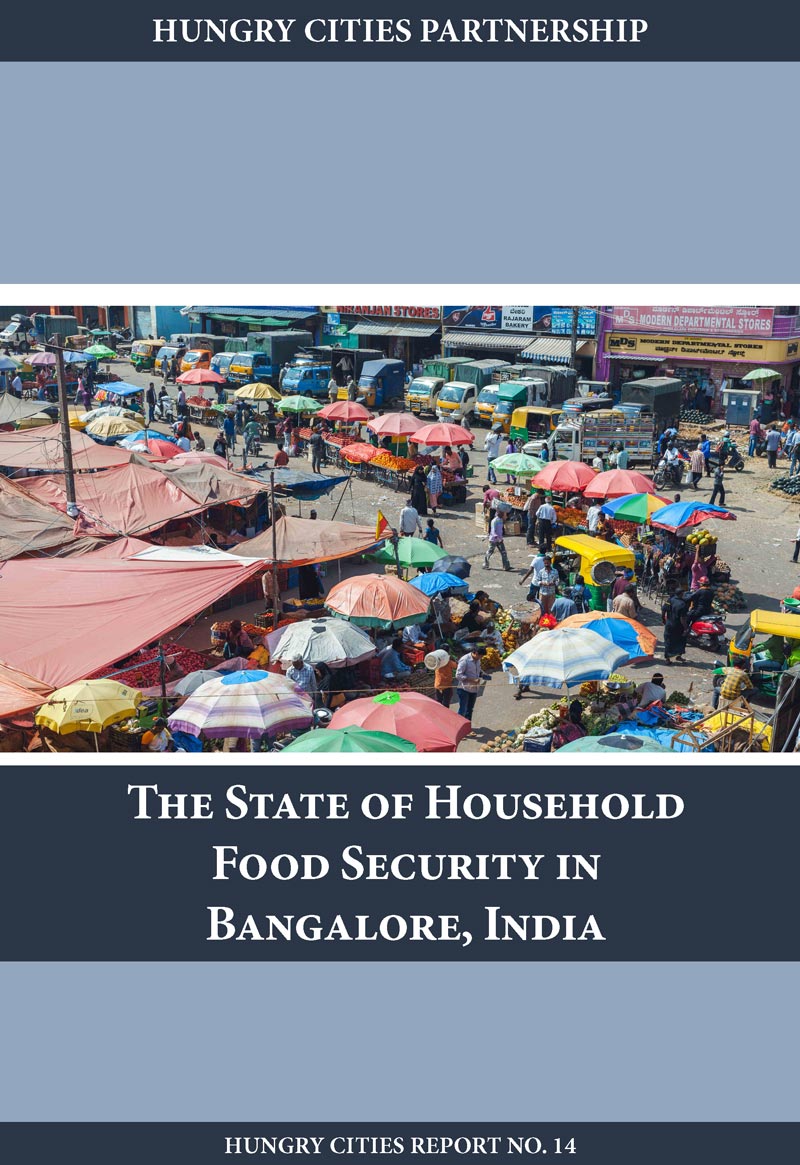This is the first large-scale survey of household food security in Bangalore and aims to provide researchers and policy-makers with detailed data and information about food security in Bangalore, as well as insights into the city’s food system. The survey found very low levels of food insecurity in Bangalore in terms of the availability and accessibility of food. However, the quality of diet varied considerably, with the household dietary diversity scores indicating that on average the households consumed foodstuffs from only six out of 12 food groups. The survey also provides important insights into the food purchasing behaviour of Bangalore households, including that the most frequented food sources in the city are small neighbourhood kirana shops, followed by dairy kiosks, informal carts, restaurants/cafés/bakeries, and meat shops. While there has been considerable controversy about the expansion of supermarkets in India, only 20% of the surveyed households shop for food at the major supermarket chains. Researchers found that small food outlets and informal vendors in markets and on the streets play a critical role in Bangalore’s food system and in ensuring the low levels of household food insecurity found in the city.

